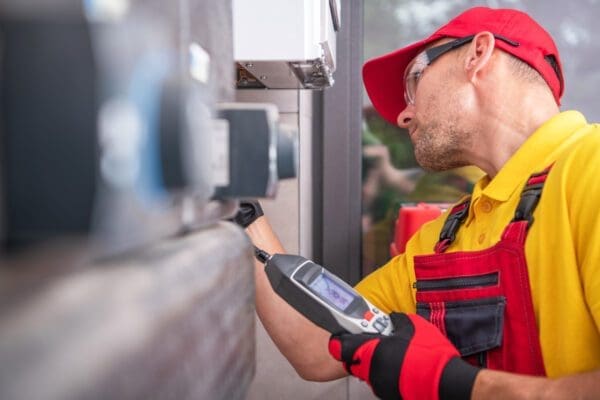Gas Line Leaks: A Handy Guide For Homeowners

Natural gas is one of the most popular energy sources in Australia thanks to its efficiency, convenience, and reliability. In fact, gas distribution networks connect more than 5.1 million Australian households to natural gas, taking up 45% of the household energy pie across the country.
However, gas leaks can occur and can be quite dangerous not only to your home and property but also to your family. To help you better understand gas leaks, here’s a handy guide that contains basic information about gas leaks at home.
Gas Leak: What Is It And What Causes It?
Natural gas runs through your property to various appliances, including your water heater, stove range, and clothes dryer, via a complex system of gas lines. Typically, gas lines are made of copper pipe or black iron pipe running through the floor or wall and flexible steel tubing that connects the supply pipe to the appliance.
Although uncommon, these lines can become compromised, leaking and releasing natural gas into the air. In general, poorly maintained and/or old gas lines or appliances are the main culprit for leaks. However, gas leaks can also be caused by the movement of old piping that disrupts and damages old, brittle sealants or deterioration of fittings or pieces between the appliances and gas lines. If you have a plumbing leak, your gas pipes may also rust and corrode from moisture.
Other potential causes of gas leaks are increased gas pressure caused by old equipment and a malfunctioning gas-powered appliance. Having gas-powered appliances such as water heaters and power dryers requires regular maintenance by your local electrical and plumbing experts like Dans Plumbing to ensure proper functioning.
Signs Of Gas Leaks In Your Home
Most of the time, gas leaks are subtle and difficult to detect, but others are noticeable by a wide range of signals. One of the most obvious signs of a gas leak is the smell of rotten eggs or sulfur. Since gas is odorless, suppliers often add these potent smells to alert homeowners when there’s a leak, allowing them to evacuate or detect the problem immediately.
In addition to the overpowering sulfur smell, some of the few signs of a gas leak include:
- A whistling or hissing sound near your gas line
- Visible damage to your gas line connection
- A dust cloud or white cloud near your gas line
- Bubbles in standing water
- Dead houseplants
- Higher than normal gas bills
In addition to these, you also need to watch out for health symptoms. The early warning sign of a gas leak in your home is often associated with symptoms of carbon monoxide poisoning.
In general, children, pets, seniors, and anyone with respiratory health issues are among the first to suffer from the symptoms of carbon monoxide poisoning. Some of the symptoms your need to watch out for include:
- Headache
- Chest pains
- Breathing difficulties
- Ringing in ears
- Throat or eye irritation
- Frequent nosebleeds
- Irritability, depression, and mood changes
- Reduced appetite
- Nausea
- Loss of consciousness
What To Do When A Gas Leak Occurs
It’s important to know what to do once you see the above signs and symptoms and determined that you have a gas leak in your home.
If a mild gas smell is present, you can simply turn off the gas pilot light right away. Open all of your windows and doors. Go outside and call your utility company so they can send a certified inspector and assess the situation.
However, in terms of more obvious and bigger leaks, make sure that all of your family members and pets are evacuated from your home immediately. Once you’re outside, leave the doors open and call your local fire department, emergency services, or your utility company. Never, ever make a call while you’re still inside your home since it can ignite the gas.
As mentioned before, gas leaks can cause severe health symptoms, so it’s important to get medical assistance right away. In case of severe health issues, call an ambulance or go to the nearest emergency center.
Takeaway
Natural gas is a cost-effective and eco-friendly alternative to other energy sources such as electricity. That said, this life-saving resource can also be disastrous and pose a health risk to you and your family when improperly maintained or installed.
This is why every homeowner needs to have at least a basic understanding of gas leaks, how to detect them and what to do in case of a leak. Doing so is key to helping you continually take advantage of this efficient energy source safely.









